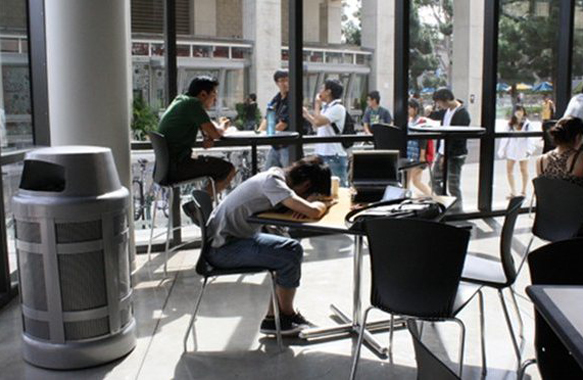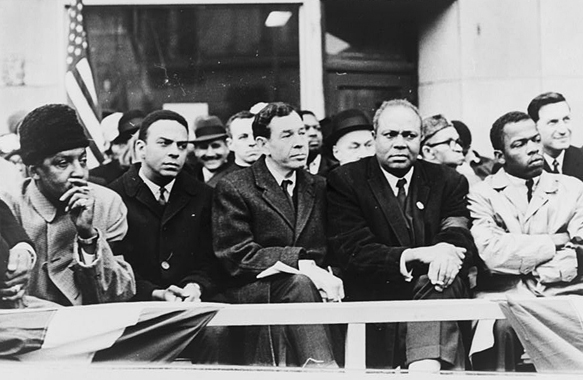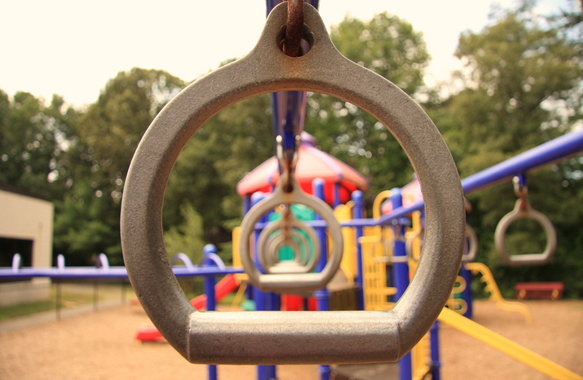Photograph: Randi Weingarten, president of the American Federation of Teachers, at the Green Dot New York Charter School in the Bronx.
By Motoko Rich
Originally Published atThe New York Times. August 15, 2013
The Common Core, a set of standards for kindergarten through high school that has been ardently supported by the Obama administration and many business leaders and state legislatures, is facing growing opposition from both the right and the left even before it has been properly introduced into classrooms.
Tea Party conservatives, who reject the standards as an unwelcome edict from above, have called for them to be severely rolled back.
Indiana has already put a brake on them. The Michigan House of Representatives is holding hearings on whether to suspend them. And citing the cost of new tests requiring more writing and a significant online component, Georgia and Oklahoma have withdrawn from a consortium developing exams based on the standards.
At the same time, a group of parents and teachers argues that the standards — and particularly the tests aligned with them — are simply too difficult.
Those concerns were underscored last week when New York State, an early adopter of the new standards, released results from reading and math exams showing that less than a third of students passed.
“I am worried that the Common Core is in jeopardy because of this,” said Randi Weingarten, president of the American Federation of Teachers. “The shock value that has happened has been so traumatic in New York that you have a lot of people all throughout the state saying, ‘Why are you experimenting on my kids?’ ”
Supporters worry that opposition could start to snowball as states face new exams in 2014-15.
“The danger here is that you have two kinds of problems going on,” said Kati Haycock, president of the Education Trust, a nonprofit group that works to close achievement gaps. “One is a Tea Party problem, which doesn’t have deep roots but does have lots of political muscle behind it, and then you’ve got a bit of anti-test rebellion coming from the left. The question is what’s going to happen if they both get together. That’s the more terrifying prospect.”
The standards, which were written by a panel of experts convened by governors and state superintendents, focus on critical thinking and analysis rather than memorization and formulas.
The idea is to help ensure that students generally learn the same things in public schools across the country.
One goal is to reduce high remediation rates at colleges and universities and help students compete for jobs that demand higher levels of skills than in previous generations.
According to some estimates, about 40 percent of students entering college must take remedial courses before they can enroll in credit-bearing classes. Nancy L. Zimpher, chancellor of the State University of New York, said the system spends about $70 million a year conducting catch-up courses for students.
The Obama administration promoted the Common Core by giving priority to states that adopted “college and career ready” standards when it awarded grants under its Race to the Top program. By last summer, 45 states and the District of Columbia had adopted the standards.
But even many who support them are wary about how they have been adopted. David Cohen, an English teacher at Palo Alto High School in California who described the standards as “reasonable,” said that among colleagues, “the resistance and the anger and frustration are still coming largely, but not entirely, from the process.”
Secretary of Education Arne Duncan has repeatedly emphasized that states, districts and teachers have broad flexibility to devise their own curriculums and lesson plans based on the standards.
Speaking about the Common Core to the American Society of News Editors in June, Mr. Duncan said: “The federal government didn’t write them, didn’t approve them, and doesn’t mandate them. And we never will. Anyone who says otherwise is either misinformed or willfully misleading.”
Last year Kentucky became the first state to give new math and reading tests based on the Common Core, and as in New York, the levels of students deemed proficient fell sharply compared with a year earlier.
Such results have spooked teachers watching from afar, particularly as more states are moving to evaluate teachers in part on student test scores.
“Looking at the types of questions on these tests, I’m scared for my kids,” said Lisa Mims, a fifth-grade teacher at Pleasantville Elementary School in New Castle, Del. “It just seems to me that it’s what they’re asking us to do in such a little bit of time, and then saying we’re going to test this.”
In an interview, Mr. Duncan acknowledged that the transition would be difficult. “It’s easier to keep saying everything’s looking great,” he said. “Potemkin village, whitewash the walls. That’s the easy way to do it, but I’m not quite sure that changes kids’ lives or helps our country remain competitive economically.”
According to a report from the Center on Education Policy at George Washington University, teachers in 30 states are already teaching some lessons based on the standards. But only 10 states reported that more than three-quarters of teachers had received any Common Core training in the most recent school year.
Supporters of the new standards say critics are too impatient.
“It’s going to take time, and it’s going to take a lot of work,” said David Driscoll, former commissioner of education in Massachusetts, which raised its own standards in the late 1990s and faced a falloff in state test scores before seeing them steadily climb. Today, Massachusetts leads the country in scores on exams administered by the federal Department of Education and ranks close to some countries frequently cited as world leaders in academic performance.
Several states have conducted teacher training as well as public outreach. In Tennessee, state education officials offered sessions to about 30,000 teachers this summer, and in Delaware, Mark Murphy, the secretary of education, said that school districts would be hosting “back to school” nights where legislators can “take part in a Common Core lesson to see and experience the type of learning that the students will be getting.”
Some critics say the new standards are simply unrealistic. “We’re using a very inappropriate standard that’s way too high,” said Diane Ravitch, an education historian who served in President George W. Bush’s Education Department but has since become an outspoken critic of many education initiatives. “I think there are a lot of kids who are being told that if they don’t go to college that it will ruin their life,” she said. “But maybe they don’t need to go to college.”
By contrast, Kristal Doolin, a middle school English teacher in Corbin, Ky., a rural area in the southeast corner of the state, said teachers should expect more of their students.
“I feel like if we lower our expectations, they will follow what we model,” said Ms. Doolin, who was selected Kentucky Teacher of the Year for 2013. “If you teach the way we’ve taught for years and years, basically we’re robbing our kids of the future.”
This article has been revised to reflect the following correction:
Correction: August 15, 2013
Because of an editing error, an earlier version of this article erroneously attributed a distinction to the American Federation of Teachers. It is the second largest teachers union — not the largest. (The largest is the National Education Association.)












Leave A Comment